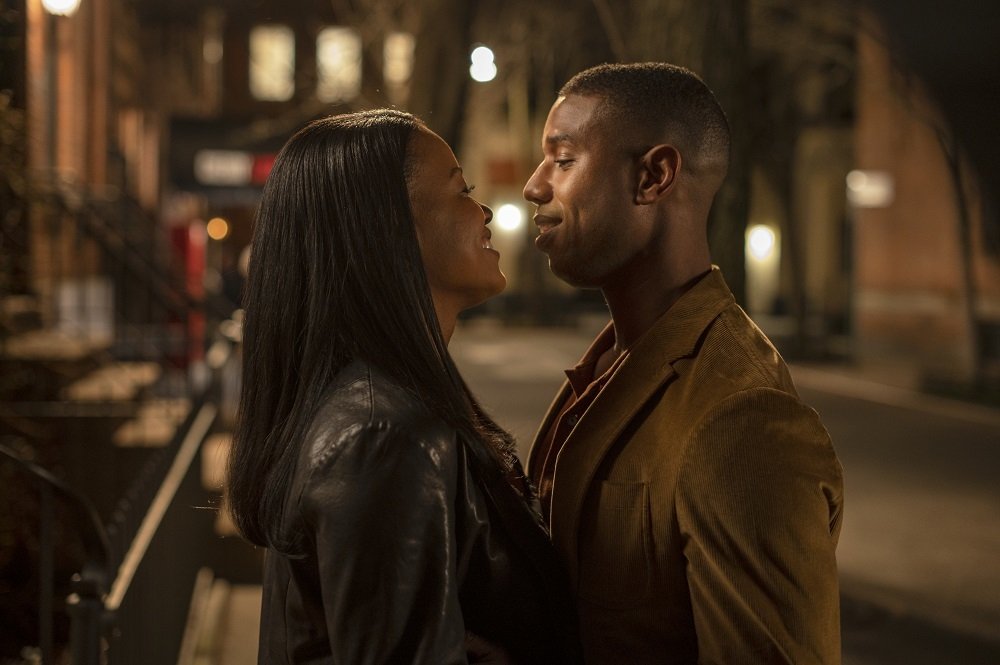A Journal for Jordan

Chante Adams and Michael B. Jordan star in A JOURNAL FOR JORDAN. (Photo: Sony Pictures)
The most head-scratching aspect of A Journal for Jordan is that it’s not really about Jordan or his journal, which would be fine if the alternative wasn’t so cloying and calculated.
This rare misfire from director Denzel Washington is a heartfelt but overly sentimental true-life melodrama probing how the bond between parents and children extends beyond death.
The story is told mostly through flashbacks following Dana (Chante Adams), a respected New York Times journalist trying to deal with single motherhood after the recent death of her longtime boyfriend Charles (Michael B. Jordan), an army sergeant who was stationed in Iraq.
While trying to move forward in her career, Dana struggles psychologically, prompting her to begin writing a memoir centered around a journal that Charles left behind, intended to teach young Jordan, then a toddler, some lessons about manhood in Charles’ absence.
As the youngster (Jalon Christian) grows into a curious teenager, he begins reading the journal and discovers the father he never met, while learning simultaneous lessons of parental sacrifice.
Jordan again showcases his versatility, although Adams (The Photograph) is more convincing in a role balancing strength and vulnerability. The relationship between Charles and Dana, with a chemistry that never feels quiet right, forms the foundation for a story that ultimately yanks too aggressively at the heartstrings.
Although Washington’s compassionate direction enables his actors to shine, the old-fashioned playful charm in the central romance is drawn out to an almost ridiculous degree, commanding more disciplined editing.
In addition, the deliberately paced and introspective screenplay by Virgil Williams (Mudbound) — based on Dana Canedy’s memoir — employs such sensitivity and restraint that it struggles while transitioning to a more textured examination of the uncertainty and trepidation facing military families thrown into turmoil by the duties of servicemen during times of war and peace.
Reverence for our troops is admirable, but here it presents an obstacle to greater emotional depth and complexity in a final act that feels rushed by comparison. Charles is given virtually no flaws to add texture, and broader sociopolitical issues are only minimally explored.
Meanwhile, the titular story of a teenager’s quest for identity and closure through his father’s posthumous gift — presumably the reason for the film’s existence — gets lost in the shuffle. By the end, much of the intended sweetness turns sour.
Rated PG-13, 131 minutes.